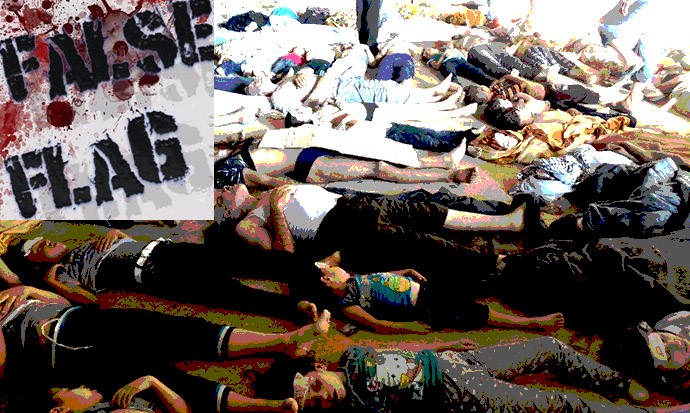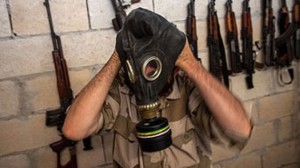For the last five years, everyone has been talking about Aleppo. I can’t even count how many interviews we’ve conducted, or how many TV news segments I’ve watched and articles read – about the battles and sieges in this crucial theatre which has come to symbolise the long war on Syria.
With all of this in mind, nothing can really prepare you for the sheer scale of the devastation visible throughout Syria’s second largest city.
Fortunately for us, the journey from Damascus to Aleppo is a lot safer than it was just a few months ago. Back in December 2016 before the liberation of Aleppo, travelers were forced to circle around the city heading northwest before turning south down the infamous Castello Road, down a perilous stretch of highway known as “Sniper Alley,” and even less affectionately as the ‘terrorists rat line’ running from Turkey into northern Syria. For a while, that was the only way in, as Al Nusra Front and its affiliates took control of nearly every major artery heading into the city. Terrorists still control many of the main roads between Hama and Aleppo and some other roads between Aleppo and the coastal region of Latakia. This means that what would normally be a comfortable three to four hour drive from Damascus, is now an eight hour journey, which at times might take you as close as 10 km from ISIS-held territory while weaving your way into Aleppo from the city’s eastern countryside.
While visiting the northern city of Aleppo, you quickly come realise that the war is still far from over. What the US and the UK still refer to as “moderate rebels” are still occupying parts of the West Aleppo countryside and are firing Grad Missiles and mortars into neighborhoods located on the outskirts of the city.

From our rooftop in the morning, you could see smoke bellowing up in the distance on the outskirts of Aleppo’s city centre (Photo: Patrick Henningsen@21WIRE)
Syrian and Russian airforce jets were buzzing over our heads while we were doing a walkthrough of the devastation in East Aleppo. I couldn’t determine whether or not that strike was a terrorist mortar or a retaliatory airstrike by Syrian or Russian forces. It was one of many we could hear and see during our visit.
After a long drive we eventually arrived downtown that evening in West Aleppo. There, I had the great pleasure of finally meeting with French activist and humanitarian, Pierre Le Corf. I had interviewed him previously for the Sunday Wire radio program to talk about his experiences and his work running his own charity called We Are Superheroes, as well as his work with war-stricken families in the city. During the height of the fighting in 2016, he was supplying families living on the front line with essential supplies including first aid kits, as well as toys for children. Following the liberation of East Aleppo in December 2016, Pierre has continued delivering assistance to families, and by virtue of listening to them and being there for them, he’s also delivering some much-needed counseling for them. He is literally a one man band, operating in one of the most dangerous conflicts ever. His efforts have been nothing short of heroic.
Even though the immediate terror threat of shelling from the east has subsided, Le Corf made a point of reminding us that the threat of terrorism is still omnipresent in Aleppo. Sitting in a cafe in the bustling Azaziya district, he showed us where terrorist mortar strikes and ‘Hell Canon’ gas canister missile attacks had killed civilians on the side walk, only metres away from where we were sitting.
“I wish you could’ve been here 5 months ago, to see what it was like. One moment you’d be sitting here, drinking coffee and talking with people, and the next second people are dying on the pavement right over there. I can still see it, very clear in my mind. But unfortunately, it happened so often that an hour after the attack, people would just carry on with their daily business. It’s really incredible.”
Danger, Clear and Present
Le Corf explained that although the bombardment of civilians has tailed-off in central Aleppo, other terrorist attacks are still ongoing in the city, including suicide bombs, and daily rocket attacks in other parts of the city.
“Still today, all the entrances to the city are bombed nearly everyday – rockets, gas canisters, mortars.”
Not surprisingly, this daily reality of terror reigning down on the civilian population has been completely blacked-out of all coverage from both Western and Gulf state media outlets – the same countries who continue to support what politicians and pundits still disingenuously refer to as “rebel opposition groups.”
“The people here have suffered a lot. Still, people keep dying from the rockets and bombs – it’s very difficult for the families (in Aleppo) because they still cannot yet escape from the war. They’ve been facing it from the start, and they keep facing it here. When you see kids dying, whether it’s 4 months ago, or just now, it’s the same. It’s exactly the same as before 4 months ago,” said Le Corf.
“Just inside the city centre, maybe they can forget a little bit about the war, but the people are still concerned.”
“The people are more tired. It’s like the war will never finish for them.”

The last tree standing following severe damage near the front lines in Shaar, in East Aleppo (Photo: Patrick Henningsen@21WIRE)

Norwegian journalist Tommy Soltvedt talking to 21WIRE’s Vanessa Beeley amidst the rubble in Shaar, in East Aleppo (Photo: Patrick Henningsen@21WIRE)
Despite the insistence by most western journalists and military industrial PR men like US Senator John McCain – that somehow The Battle of Aleppo was born out of ‘peaceful opposition’ protests in 2012. Everyone we spoke to -residents, Syrian Army personnel and media professionals all told us the same story: back in the summer of 2012 the city of Aleppo was literally invaded on multiple fronts by militant extremists and mercenaries, operating under various banners, starting with the western-backed Free Syrian Army (FSA), the al-Tawhid Brigade, who were soon followed by home-grown Arar al Sham, and the Saudi Arabia and Qatari-sponsored Al Nusra Front (al Qaeda in Syria), ISIS, the Levant Front and others.
It wasn’t long before terrorist brigades were embedded throughout east Aleppo and surrounding areas, and throughout the outskirts of the greater Aleppo city limits. Terrorists occupied government buildings, schools, and hospitals, and even the historic 12th century Umayyad Mosque in Aleppo which was tuned into a military command centre by Al Nusra.
From 2013, Al Nusra and ISIS occupied the Eye and Pediatric Hospital in Shaar, East Aleppo, which was quickly converted into a Sharia Court house and an underground prison. The site was run by the ‘Hayaa al-Sharia’ authority, known by extremists the Hayaa.
When I looked at all the ISIS literature all over the ground, and all over the walls, I imagined the suffering of the people in this city, and then I remembered watching CNN’s very own CFR mouthpiece, Fareed Zakaria, only last month, with one of his many ‘Syrian opposition’ guests, a woman who looked into the camera and claimed that Al Nusra and ISIS were never in Aleppo as she waxed on about ‘the revolution.’ Of course, Zakaria had no clue, which seems to be par for the course at the Pentagon’s premier propaganda mill.

A cursory tour of the ruined Eye Hospital turned up endless ISIS and Al Nusra paraphernalia (Photo: Patrick Henningsen@21WIRE)

Destroyed vehicles parked outside the Eye hospital (Photo: Patrick Henningsen @21WIRE)
Ghost City
The damage we saw in East Aleppo is practically indescribable, outside of comparisons to Stalingrad. For the most part, half the city resembles a dystopic ghost town, although signs of life are beginning to return to many of the devastated areas.
After walking through the neighborhood of Shaar, it’s easy to see where the frontline fighting had spilled into every single side street and neighborhood. Makeshift barricades were erected by occupying militants on almost every street entrance.

A blocked off alley way in Shaar, piled high with debris (Photo: Patrick Henningsen@21WIRE).

East Aleppo barricade (Photo: Patrick Henningsen@21WIRE)
According to our guide and a number of other residents we spoke to, the vast majority of the damage was inflicted by fighting on the ground – street by street, block by block – and not from the air. This is an important point because western media coverage attributed nearly all of the damage to air strikes by the Syrian Air Force, and from late 2015 by Russian jets. This was the script put forward by western media outlets throughout the conflict – which became the basis of the pretext for ‘rebel’ pleas for western intervention, and endless calls in the west for a ‘No Fly Zone,’ or ‘Safe Zones,’ calls which continue to this day.
In actuality, extensive damage in the heavy fighting areas around Aleppo was the result of artillery, tank ordinances and heavy gun fire from both sides, and from terrorist gas canister ‘Hell Canons’, rockets and bombing. Unlike the terrorist barrages which were fired randomly into civilian areas, Syrian air strikes were targeted, as were later Russian strikes. This fact is fairly self evident after touring the battle zone.

Layramoun district was home to the infamous Brigade 16 of the Free Syrian Army (Photo: Patrick Henningsen @21WIRE)
Barrel Bombs vs Hell Cannons
In addition to the military front, information warfare is arguably an even bigger and more complex battle ground in this protracted conflict.
Egged-on by the mainstream media, the US and British political establishment figures quickly adopted the ‘Barrel Bomb’ talking point as the idiopathic rallying cry for the removal of Syrian President Bashar al Assad. This elaborate media mythology construct claims that the Syrian Army have been busy dropping barrel bombs from helicopters, intentionally targeting civilians, and especially schools and hospitals, or so the story went. This was repeated ad nauseam by caustic US hawks like Senator John McCain and Lindsey Graham, despite the fact that very few people had actually seen the barrel bombs in action. Based on the frequency of western barrel bomb reports, you’d think that these would have been filmed and analysed, but instead these reports remain mostly anecdotal. What’s most interesting here, and yet completely ignored by western mainstream media sources, is that the damage inflicted from terrorist Hell Cannon strikes appears to be identical to bromidic tales of the barrel bomb. Both are said to have been used often and indiscriminately, with both featuring a crude metal casing, packed with powerful explosives and shrapnel, designed to inflict maximum damage. Unlike the illusive barrel bombs, footage of the ‘rebel’ Hell Cannon in action is easy to find. Rebel-terrorists not only fired into government-held West Aleppo but also in contested and ‘rebel-held’ areas throughout the Battle of Aleppo. Knowing this, a responsible journalist might ask the pertinent question: how many of Aleppo’s alleged ‘barrel bomb’ attacks attributed to the ‘regime’ were actually Hell Cannon strikes made by the ‘rebel opposition’?
After 2012, gas canister Hell Cannons became the weapon of choice for terrorists, as they shelled residential areas all over Aleppo in a long-running campaign of terror. In total, upwards of 15,000 Aleppo residents have died since 2012 from terrorist ordinances, bombs and gas canister missiles. All of these victims have been documented by name, with details of their injuries, along with their family details collated by the Aleppo Medical Association. Contrast this with the fantastic claims by the US and British-funded ‘search and rescue NGO’ called the White Helmets, who claim in their official literature to have saved some 80,000 lives from the regime’s “barrel bomb” and air attacks since they were founded in late 2013. Unlike the Aleppo medical authorities, the White Helmets have not as yet provided any actual details of these 80,000 persons, or their injuries. While the incredible claims of the White Helmets continue to garner praise and Oscar awards, the western media seem blind to the 15,000 residents left dead from terrorists strikes, including thousands of dead children. This is a good example of the intricate campaign of disinformation which has been waged against Syria by the west, and continues to this day.
McCain’s Army: Brigade 16
After surveying the Eastern districts, we drove through Kurdish-controlled Sheikh Maqsood area in the city’s northern sector, before heading into the Layramoun district which used to be the textile manufacturing hub of Aleppo. Layramoun became the main base of operations for Brigade 16, who are also credited for inventing the Hell Cannon gas canister bomb delivery system.
It is in Layramoun that the infamous ‘Brigade 16’ set-up a Hell Cannon assembly line in one of the occupied textile factory buildings.
As it happened, Senator John McCain travelled to northern Syria in May 2013 where he met with leaders of the Free Syrian Army (FSA) and other ‘rebel’ operatives, some of which were later identified as persons with known links to terrorist groups and criminal gangs. One of these was a member of the infamous Brigade 16, commonly known as the “16th Infantry Division” (Arabic: الفرقة 16 مشاة) of the FSA, known to be responsible for a number of criminal enterprises including robbery, kidnapping, extortion, and the mass looting of factories around Aleppo.
Walking into the factory, you can still see the Brigade 16 emblem prominently displayed on the post to the lefthand side of the building’s entrance.

Brigade 16 commandeered factory in textile district to produce gas canister bombs (Photo: Patrick Henningsen @21WIRE)
Driving into the the city from the east, we passed the Jibrin Refugee Centre where thousands of Aleppo displaced residents are still housed, along with newly arrived survivors of last week’s car bomb attack at Rashideen outside of Aleppo, where at least 126 people were killed. The buses were transporting residents who were being evacuated from the towns of Foua and Kefraya, both under terrorist siege for the last two years. The violent event was a stark reminder of just how vicious this war continues to be, and that the ones who suffer the most are not governments, but the poorest of the people.

(Photo: Patrick Henningsen @21WIRE)
Also along the eastern entry highway, coming off the road which connects Aleppo to Raqqa, we also passed the Sheikh Najjar Industrial District. What you see is difficult to comprehend. Every single factory and industrial estate we passed was decimated. This is one of the most profound and yet completely under-reported aspects of the war which also gets no airtime whatsoever by ‘experts’ in the western circles.
Undoubtedly, Aleppo was one of the top manufacturing powerhouses of the Middle East, and the economic heart of Syria. Since 2012, that heart has been torn from the country by a systematic and targeted effort administered by multiple terrorist factions.
What’s more important to note, is how all of the estimated 1,500 that were trashed or converted to terrorist military facilities, had their contents completely looted by armed groups – piece by piece, machine by machine, before being taken north into Turkey.
The obvious object of this exercise, aside from the fencing value of the stolen goods, was to remove Syria’s ability to supply its own markets with products and make it dependent on imports from neighboring countries, including Turkey.

Independent Parliamentarian Fares Shehabi MP from Aleppo (Photo: Patrick Henningsen @21WIRE)
The next day we met with Aleppo MP and Chairman of the Aleppo Chamber of Industry, Fares Shehabi. He explained the scale of the disaster left in the wake of the dismantling of Aleppo’s manufacturing sector by western and gulf state-backed terrorist groups, including looting carried out by Brigade 16.
“Brigade 16 of the Free Syrian Army used to occupy the industrial zone. They robbed 1000 factories – completely, they even took the copper from inside the walls. They began this in June 2012 and it was liberated 4 years later. They took everything to Turkey.”
After the liberation of Aleppo’s terrorist-held areas, Shehabi led a delegation to liberated areas in order to survey the damage.
“When we entered the day after liberation, I went with 200 industrialists and they saw their factories in rubble, looted completely. We saw the slogans, we saw a torture prison for pro-government people, we saw the ammunition factories, mortar factories. The guys who used to run this were Brigade 16 – they were the same ones hitting us with the gas canister (missiles), or Hell Cannons,” said Shehabi.
“Myself, I had three factories – a pharmaceutical factory, an olive oil factory, and a clothing factory. The clothing factory is still… for five years now – under Al Nusra control. The olive oil factory, ISIS took it and turned it into a command center for two years. When we finally took it back, I turned it into a school for poor children. The pharmaceutical factory is in a hot zone, still.”
“ISIS even issued an official letter from their court to order the confiscation of my factory.”

‘Official’ ISIS decree to confiscate factory under new Sharia legal domain (Photo: Fares Shehabi)

Ransacked and looted: one of thousands of factories taken over or destroyed by terrorists groups in Aleppo (Photo: Fares Shehabi)
Still, Shehabi is amazed at how western media professionals and politicians are still referring to terrorist factions as the ‘rebel opposition,’ or ‘moderate rebels.’ He then proceeded to show us his collection of photos of numerous radical militant leaders posing with various US officials. One after another, Shehabi delivered a damning indictment of western political leaders and their seemingly open affiliations with radical salafi terrorist commanders.
“Brigade 16 invented the Hell Canon (photo), and Brigade 16 were with John McCain as we can see in the picture. Look, this is (Colonel) Riyad al-Asad – the founder of the FSA, the most ‘moderate’ of them all, sitting here with the Taliban of Syria. Even the Taliban have a branch in Syria.”
“This is the Aleppo (FSA) commander with Robert Ford, and this is the same guy with ISIS.”
Despite the fact that all of these images have been freely available online, these associations still do not register with US media, carefully whitewashed under layers of carefully crafted anti-Syrian propaganda.
Shehabi also knocked back the western misconception about claims of how many actual civilian residents were in East Aleppo during the war, as opposed to imported foreign terrorist mercenaries.
“Remember when they (the western media) used to say, ‘we have 250,000 people living here in East Aleppo and there are no foreigners, they are all from East Aleppo.’ When they (the terrorists) conquered East Aleppo, there used to be 2 million in East Aleppo. This number dropped to 113K, because immediately after the occupation of East Aleppo 1 million people left. They came to this area and we still have half a million of those people living here (in West Aleppo). The other half million went to the Alawite areas, the coastal areas (Latakia and Tartous). They did not say, ‘oh, these are Alawites, or these are Shi’ites.’ They went there immediately, and they are still living there. So the actual number in East Aleppo dropped to about 113,000.”
“During the evacuation that took place in Dec 2016 in the green buses, 20,000 was the total number of people who left East Aleppo to Idlib, from those who left – 15,000 were not from Aleppo – they were a combination of people from Idlib, and many foreigners – Uzbekistan, Chechens, Saudis. Only 5,000 thousand went with them (to Idlib?), the rest are still here (in West Aleppo). Everyone is now involved – this conflict is now internationalized,” said Shehabi.
As the dust begins settling on Aleppo, it’s now widely understood by Syrians that Turkey has played the pivotal role since the conflict began in 2011 by facilitating terrorist forward operating bases inside of Turkey, as well the destruction of the Syrian economy. After Syria’s manufacturing sector had been gutted and taken north into Turkey, it’s safe to say there is no love lost between Syrians and the Turkish president Recep Tayyip Erdoğan.
On this, Shehabi remarked,
“We call him ‘The Thief of Aleppo’, Erdogan. For the past 6 years he wanted to establish a parliamentary system in Syria. He said the presidential system in Syria is no good and that we need a parliamentary system in Syria. Why? So that the Muslim Brotherhood can reach power. Ok, so you want us the change to a parliamentary system – while you want a presidential dictatorship in Turkey?”
Culture Targeted
Aside from manufacturing and merchant sectors, another area which has disappeared is tourism, estimated to have comprised roughly 14% of Syria’s economy before the war. The country boasts an unrivaled collection of historical sites which predate both Christian and Islamic civilizations. Syria’s Christian and Islamic sites are some of the most highly regarded in the world.
Veteran tour guide Mohammad Al Khousi explained to us how the conflict has affected him personally, as well as his industry, and how this aspect of the crisis cuts much deeper than the issue of tourism.
“As a guide, I was sometimes in Aleppo three days per week, so Aleppo was like a second home for me. Before the war, I was last in Aleppo in 2009. I was back in 2013 briefly, but when I finally returned to Aleppo in 2016 – it was the saddest day of my life. Honestly, I was crying. When I left Aleppo before, I had great memories. They destroyed my business, as well as all of the other guides I know. They (the terrorists) destroyed shops, and all their incomes. They burned the Old Souks, they burned the gold market, they burned the soap market, they burned the textile markets. Look how many people lost their businesses; as a guide, a shopkeeper, all the drivers, the travel agencies – some of them died, some of them handicapped, some lost their parents, or lost their kids. It’s really very sad, it’s a tragedy.”
“I did an interview on Danish TV, it was a 3 hour recorded interview, and I couldn’t hold it anymore, I started crying. I wasn’t crying because I lost my home, I was crying for Palmyra and Aleppo,” said Al Khousi.
Like so many others we spoke to, Al Khousi believes that Syria’s historic sites have been targeted intentionally, and strategically.
“It started in Lebanon, continued to Iraq, continued to Palestine, then to Syria, and also Yemen. Yemen is the source of civilization to Saudi and to the Arab peninsula. Why? It seems that someone wants to destroy our culture – our civilization.”

After heavy fighting, the Old Citadel remains in tact (Photo: Patrick Henningsen @21WIRE)

A view looking down from the steps of Aleppo’s 13th century Old Citadel, at what is left of the site where the Ritz Carlton Hotel once stood (Photo: Patrick Henningsen @21WIRE)
Before the war, the Ritz Carlton Hotel in Aleppo was arguably one of the most impressive boutique hotels in the world with a position and view which was second to none. The stately home turned hotel was part of the UNESCO World Heritage Site.
In May 2014, terrorist fighters tunneled under the hotel, before detonating explosives which completely destroyed the building.

Dr Bouthaina Shaaban (Photo: Patrick Henningsen @21WIRE)
The bombed-out property took on a whole new meaning after a later conversation we had with Dr Bouthaina Shaaban, Syria’s chief political and media adviser to the President, who recalled a harrowing tale of her last encounter with the Turkish leader Erdogan right before the war began in 2011:
“I remember… just before the war on Syria started, when President Erdogan came to Aleppo to visit President Assad, and we were having dinner in what was in the Carlton Hotel but now it’s totally demolished, and it was overlooking the castle (Old Citadel). The view was truly amazing. I was sitting next to Erdogan and he was looking at the castle and said to President Assad, ‘Is there any other place in the world, where you can sit in such a modern place and sit and look at such an so old historic place.’ I remember that, and I remember his tone, but I never imagined he would be so resentful and that he would like to destroy a place he doesn’t have – something he can’t have and can’t claim.”
Any remaining doubt that the takedown of Aleppo, and Syria, was planned well in advance – was long gone by the end of this visit.
Patrick Henningsen is a global affairs analyst and founder of the independent news and analysis site 21st Century Wire as well as a regular guest commentator for the UK Column News, RT International, host of the SUNDAY WIRE weekly radio show broadcast globally over the Alternate Current Radio Network (ACR).

 As can probably be rightly inferred, the previous clinching of energy partnerships such as the Rosneft sale to Qatar and OPEC agreement with Saudi Arabia made each of Russia’s counterparts more amenable to speaking with it, therefore setting up the present diplomatic situation leading up to the unannounced Parallel Tripartite between Russia, Qatar, and Saudi Arabia over Syria. This in turn advances Russia’s vision of playing the role of Eurasia’s chief geopolitical balancer and therefore strengthens its grand strategic plans in the New Cold War.
As can probably be rightly inferred, the previous clinching of energy partnerships such as the Rosneft sale to Qatar and OPEC agreement with Saudi Arabia made each of Russia’s counterparts more amenable to speaking with it, therefore setting up the present diplomatic situation leading up to the unannounced Parallel Tripartite between Russia, Qatar, and Saudi Arabia over Syria. This in turn advances Russia’s vision of playing the role of Eurasia’s chief geopolitical balancer and therefore strengthens its grand strategic plans in the New Cold War.
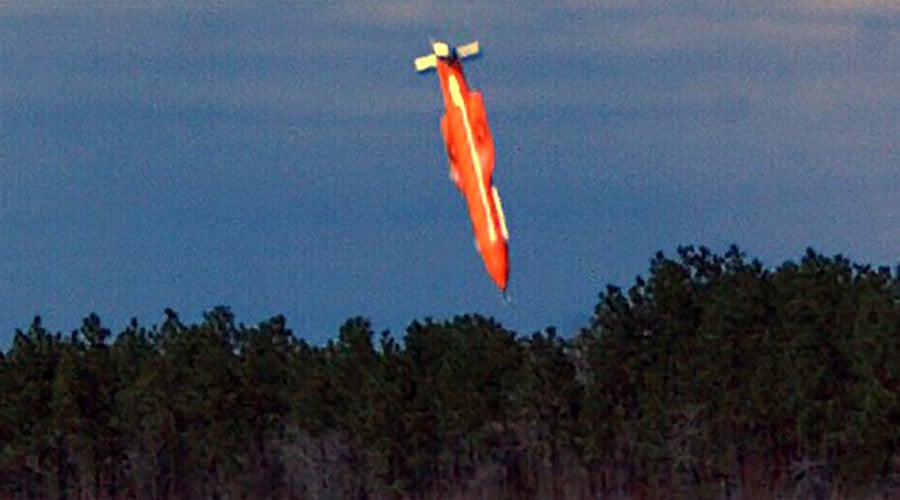
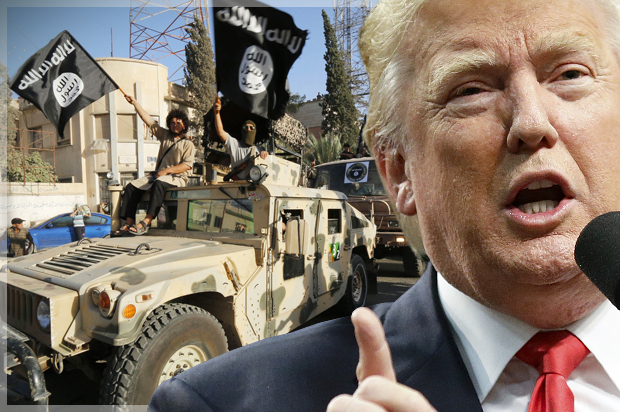
.jpg.b92b09992dfaa107ceaaeabe87d8287c.jpg)
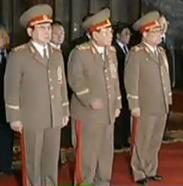

 The inherent, objective logic of these processes is economic and military war, to which the capitalist politicians can offer no progressive alternative, as the impotence displayed by the IMF in the face of what it recognises as a great danger once again underscored. This is because the growth of economic nationalism and protectionism is rooted in the very foundations of the socio-economic system based on private profit and the division of the world into rival nation-states.
The inherent, objective logic of these processes is economic and military war, to which the capitalist politicians can offer no progressive alternative, as the impotence displayed by the IMF in the face of what it recognises as a great danger once again underscored. This is because the growth of economic nationalism and protectionism is rooted in the very foundations of the socio-economic system based on private profit and the division of the world into rival nation-states.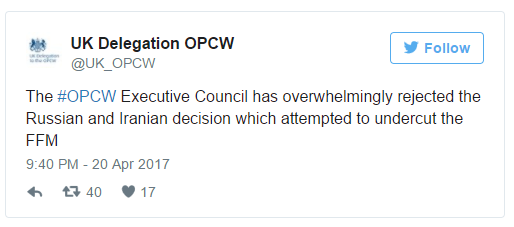





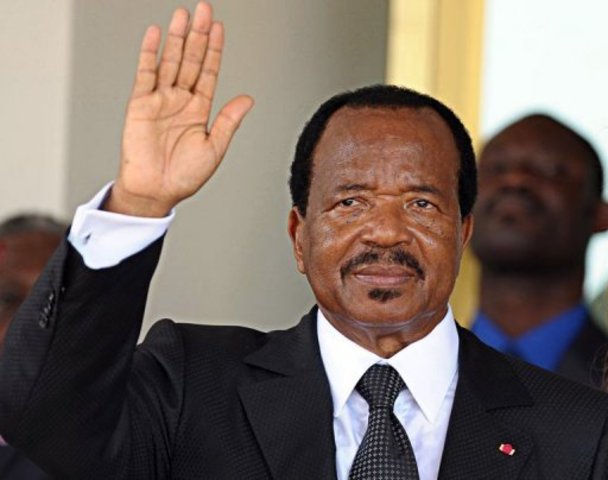 Teachers and civil servants went out on strike late last year in the English speaking provinces due to policies initiated by the government of President Paul Biya, who has been in office now for 35 years. Lawyers and legal workers objected to the imposition of French speaking judges in their court systems which created an untenable situation.
Teachers and civil servants went out on strike late last year in the English speaking provinces due to policies initiated by the government of President Paul Biya, who has been in office now for 35 years. Lawyers and legal workers objected to the imposition of French speaking judges in their court systems which created an untenable situation.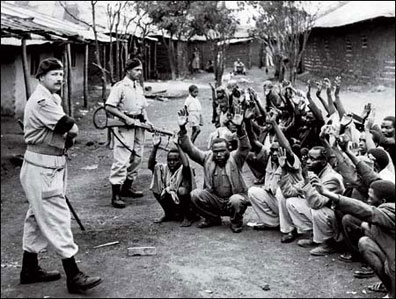 Also the Germans were involved in East Africa through the colonization of the area now known as Tanzania, then Tanganyika, along with Rwanda and Burundi. In Tanzania, the Maji Maji Revolt of 1905-07 against German imperialism prompted another genocidal wave of violence resulting in untold numbers of deaths through brute force, dislocation and systematic starvation. The people of Tanzania are now demanding reparations from the government in Berlin which is seeking to enhance its trade and political relationships with independent African states.
Also the Germans were involved in East Africa through the colonization of the area now known as Tanzania, then Tanganyika, along with Rwanda and Burundi. In Tanzania, the Maji Maji Revolt of 1905-07 against German imperialism prompted another genocidal wave of violence resulting in untold numbers of deaths through brute force, dislocation and systematic starvation. The people of Tanzania are now demanding reparations from the government in Berlin which is seeking to enhance its trade and political relationships with independent African states.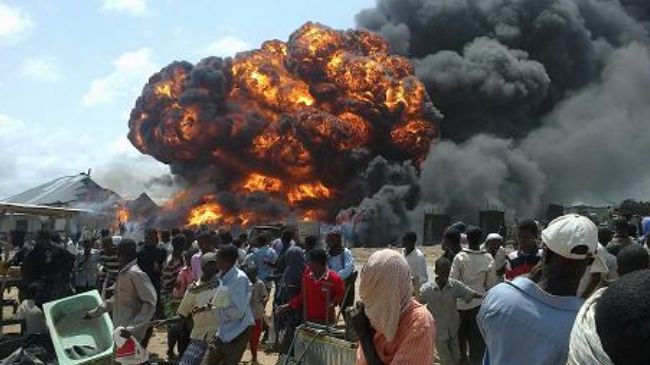 Late last month, President Trump issued another executive order on Somalia. The essence of the initiative was to purportedly relax restrictions on carrying out aerial strikes against Al-Shabaab fighters who have been in a war with the U.S. and European Union (EU) supported government in Mogadishu.
Late last month, President Trump issued another executive order on Somalia. The essence of the initiative was to purportedly relax restrictions on carrying out aerial strikes against Al-Shabaab fighters who have been in a war with the U.S. and European Union (EU) supported government in Mogadishu.



















 On November 27, 1950 hundreds of thousands of Chinese troops suddenly crossed the border into North Korea completely overwhelming US forces. Acheson said this was the “worst defeat of American forces since Bull Run.” One famous incident was the battle at the Chosin Reservoir, where 50,000 US marines were surrounded. As they escaped their enclosure they said they were “advancing to the rear” but in fact all American forces were being routed.
On November 27, 1950 hundreds of thousands of Chinese troops suddenly crossed the border into North Korea completely overwhelming US forces. Acheson said this was the “worst defeat of American forces since Bull Run.” One famous incident was the battle at the Chosin Reservoir, where 50,000 US marines were surrounded. As they escaped their enclosure they said they were “advancing to the rear” but in fact all American forces were being routed.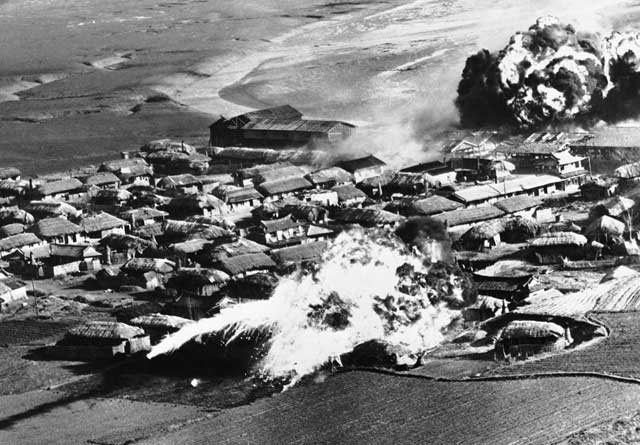
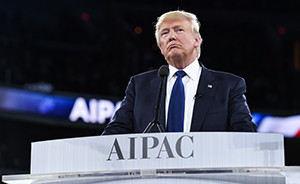
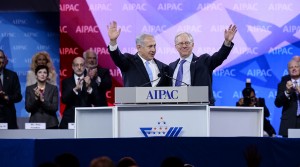
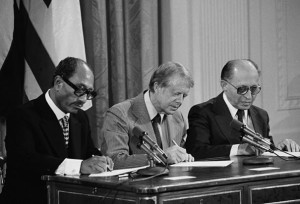
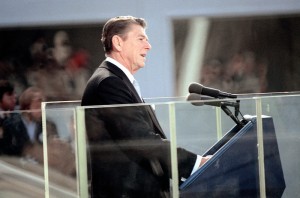

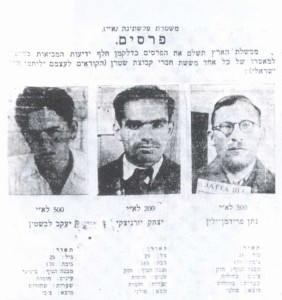
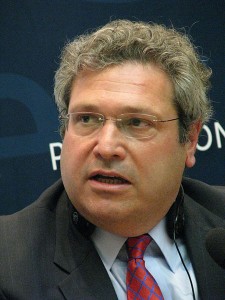
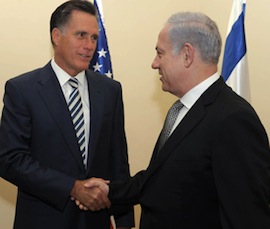
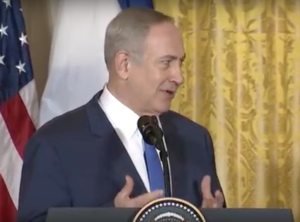

 How student loan debt become the only kind of debt that cannot be relieved in bankruptcy.
How student loan debt become the only kind of debt that cannot be relieved in bankruptcy.
 What is the student debt movement to do? Of course the Biden bankruptcy protections should be repealed but that is not enough. We need a complete student loan debt forgiveness program. These debts are ill gotten gains and should be forgiven. If the government refuses to forgive these debts, people must rise up together and refuse to pay any student loan debt.
What is the student debt movement to do? Of course the Biden bankruptcy protections should be repealed but that is not enough. We need a complete student loan debt forgiveness program. These debts are ill gotten gains and should be forgiven. If the government refuses to forgive these debts, people must rise up together and refuse to pay any student loan debt.
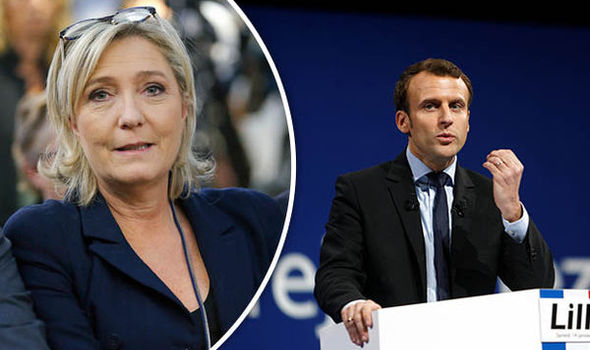 So now we are faced with the choice between a fake left – Macron – and a fake “extreme right”: Marine Le Pen.
So now we are faced with the choice between a fake left – Macron – and a fake “extreme right”: Marine Le Pen.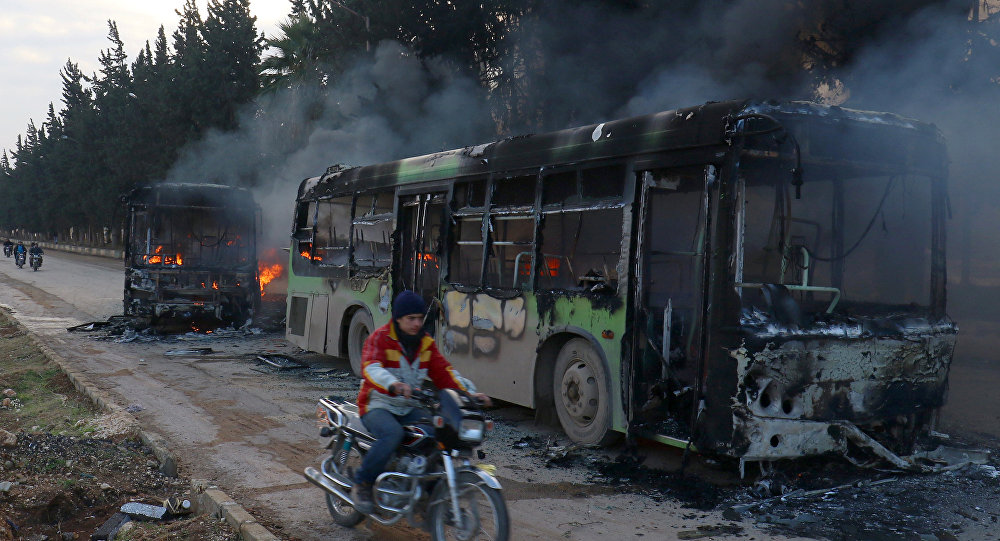
 Plans for what is going on in Syria today go as far back as 1984, as recently disclosed intelligence documents demonstrate.[13] As Tyler Durden points out these long before laid plans “prophetically foreshadow the current crisis” and mayhem.[14] It has nothing to do with barrel bombs or “dictators killing their own people” and everything with installing a compliant Syrian government in order to lay oil and gas pipelines under globalist control in order to bring Western-controlled energents to European markets and thus outflank Russia in the field of energy competition.
Plans for what is going on in Syria today go as far back as 1984, as recently disclosed intelligence documents demonstrate.[13] As Tyler Durden points out these long before laid plans “prophetically foreshadow the current crisis” and mayhem.[14] It has nothing to do with barrel bombs or “dictators killing their own people” and everything with installing a compliant Syrian government in order to lay oil and gas pipelines under globalist control in order to bring Western-controlled energents to European markets and thus outflank Russia in the field of energy competition.
 I wanted to check the authenticity of these portents and I asked my good friend Sheikh Imran Hossein, the foremost authority on Islamic eschatology, to enlighten me. This is his response:
I wanted to check the authenticity of these portents and I asked my good friend Sheikh Imran Hossein, the foremost authority on Islamic eschatology, to enlighten me. This is his response: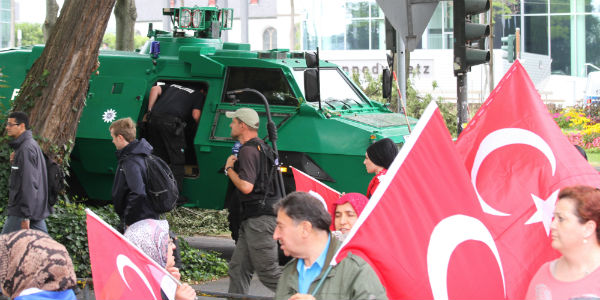

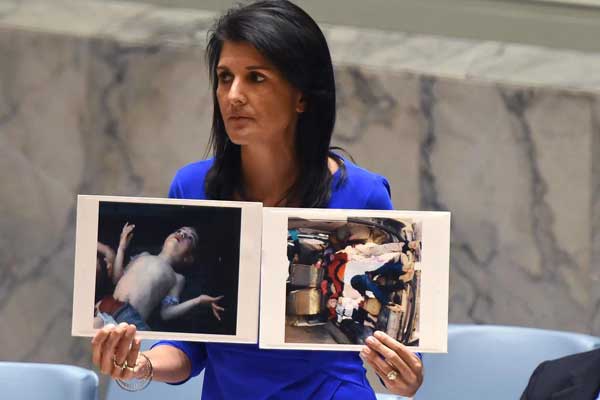
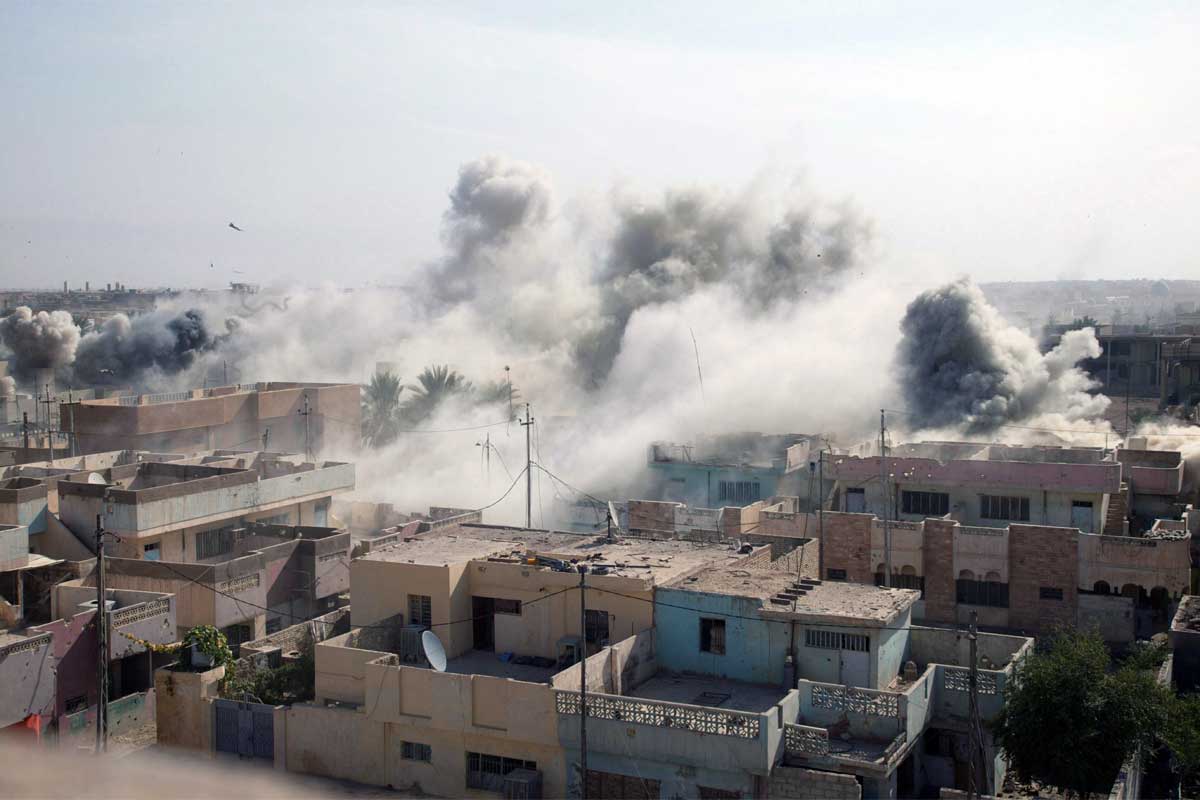

 Lastly, I enclose Bruce Cumings’s “Nation” analysis of North Korea, as he again reminds us of the purposes of studying history. Can we wake up before it’s too late?
Lastly, I enclose Bruce Cumings’s “Nation” analysis of North Korea, as he again reminds us of the purposes of studying history. Can we wake up before it’s too late?

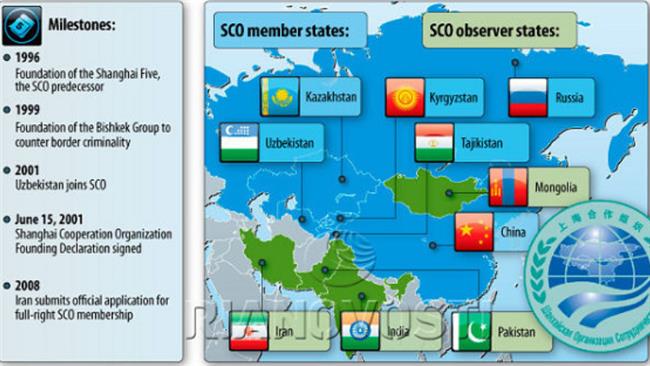
























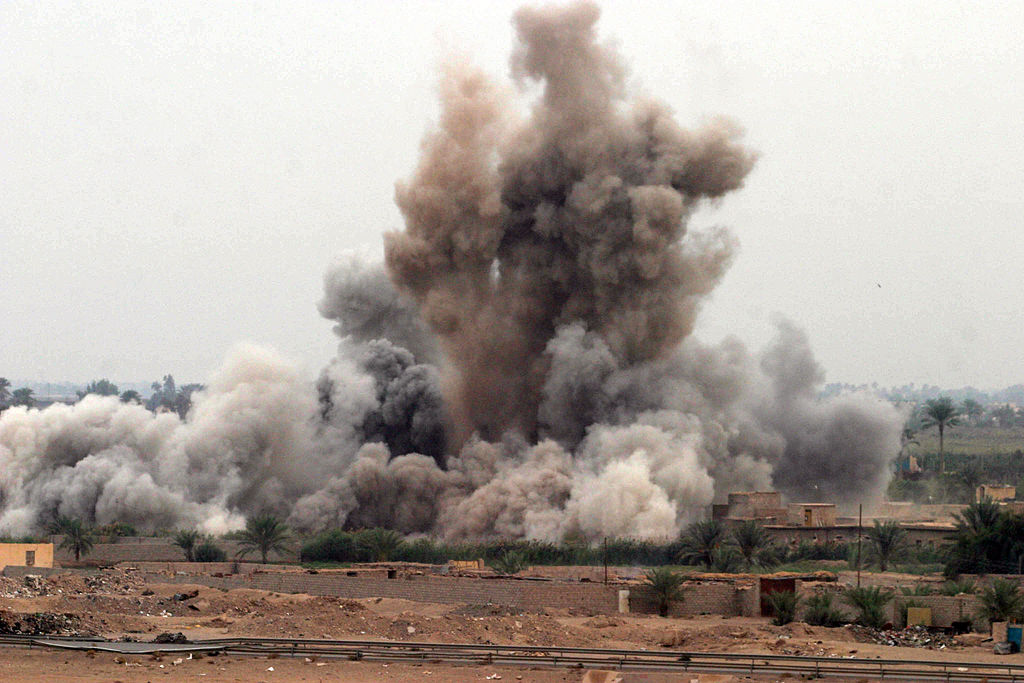
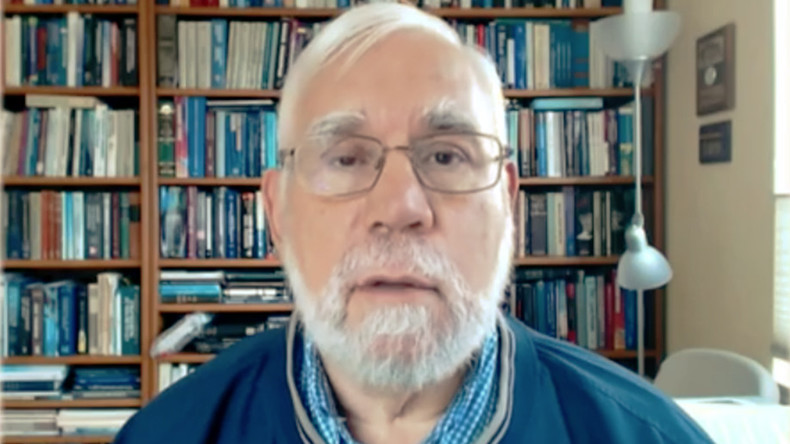
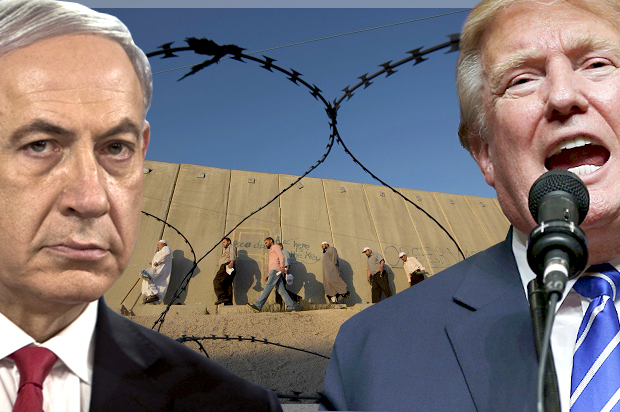
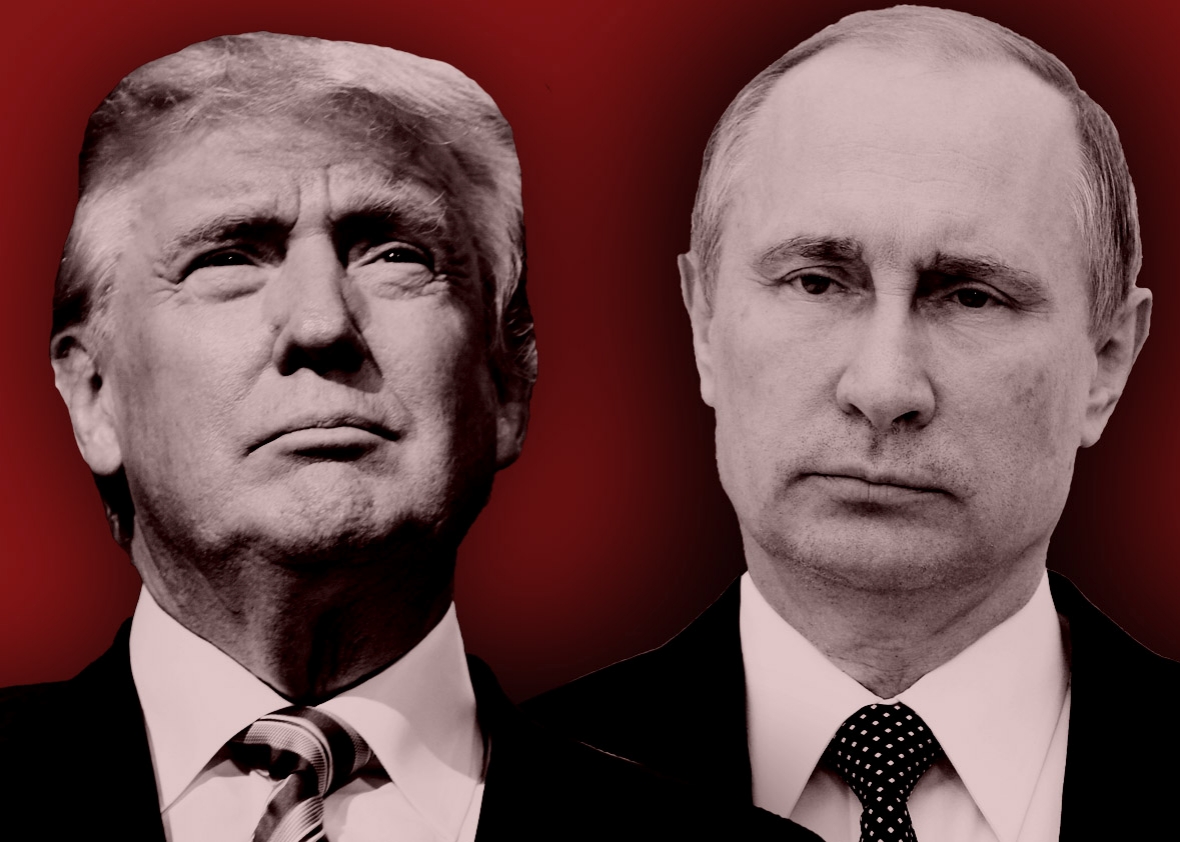
 Mr. Humor drew attention to an article that had been published in “The Daily Beast” a year ago, on 8 April 2016, “
Mr. Humor drew attention to an article that had been published in “The Daily Beast” a year ago, on 8 April 2016, “
